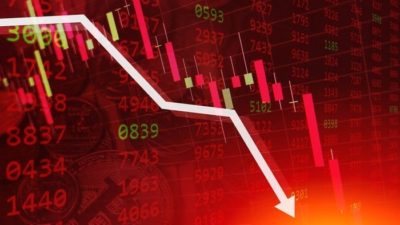This article was originally published on Fool.com. All figures quoted in US dollars unless otherwise stated.
Warren Buffett, famous investor and fourth-richest person in the world, has some investing advice for you. And it doesn't involve ratios, valuations, or any nonsensical acronyms that have something to do with cash flow. Nope, Buffett's recommendation is far more straightforward: He says you should be buying index funds.
Beating the market versus moving with the market
An index fund is a mutual fund or exchange-traded fund (ETF) that mimics the behavior of an underlying index. When you invest in index funds, your goal is to keep pace with the market. That's very different from the approach taken by stock pickers and active mutual fund managers -- people like Buffett himself. Stock pickers don't want to ride along with the market; they want to beat the market.
The trouble is, few people can consistently pull that off. Buffett, as CEO of Berkshire Hathaway, had an amazing run of outperforming the S&P 500, but even he's been less successful recently. And according to S&P Indices Versus Active (SPIVA), 80.6% of actively managed large-cap mutual funds underperformed the S&P 500 over the past five years. In other words, beating the market is hard for anyone -- let alone the part-time investor.
As an investor, you have to choose your battles. You can try to beat the market by picking stocks or by investing in actively managed funds. Unfortunately, it's likely you or your fund manager will underperform. Alternatively, you can opt for moving with the market via index funds. Considering that the S&P 500 has shown an average annual growth of 7% after inflation since its inception, riding those coattails isn't a bad deal at all.
Timing is important
As the first quarter of 2020 has reminded us, the long-term trends of the S&P 500 can be quite different from what's happening in the market right now. The average growth may be 7%, but in any given year, the index might be up 30%, down 30%, or somewhere in between.
When you invest in an S&P 500 index fund, you're signing up for the good and the bad. That's why it's important to invest only in funds you don't need for seven years or more. That way, you can ride out the inevitable downturns calmly, without having to liquidate at a low point.
Why fund performance won't exactly match the index
Take a look at a handful of S&P 500 index funds and you'll quickly see that they don't track exactly with their index. There are several reasons for this. Some funds achieve index-level performance by replicating the index exactly; others use a representative sample that behaves like the index, often to keep costs low. Changes in the composition of the index also have to be replicated by the fund after the fact, which can affect performance. But the biggest drag on the fund's performance relative to the index is the fund's expense ratio.
Expense ratio is the fund's operating costs as a percentage of total assets. Since fund expenses do reduce shareholder returns, you should make a practice of choosing index funds with very low expense ratios. That essentially allows the fund to produce returns that are more in line with the underlying index.
You can diversify with multiple funds
Buffett is a proponent of S&P 500 index funds in particular, because the portfolios are naturally diversified across 500 large, reputable companies. But holding only a single, large-cap equity fund may not match your risk tolerance or timeline. That's a problem easily solved, however. You can tailor the risk level in your portfolio by holding -- you guessed it -- other index funds. For example, you could add a bond index fund to reduce your reliance on equities or an international equity index fund to reduce your reliance on the one economy.
Rebalance to manage risk
If you do hold multiple index funds, pay attention to how the composition of your portfolio changes over time. Generally speaking, your equity funds will grow in value, while your bond funds will throw off cash, but remain fairly stable. Since equities are riskier than bonds, letting that trend go unchecked will add risk to your portfolio.
The solution is to rebalance your holdings every year. Rebalancing is the process of adjusting your portfolio composition back to where you want it to be. You'd do this by selling off some of the funds that are over-weighted and using the proceeds to buy funds that are underweighted. In practice, this usually means reducing your equity positions and increasing your bond positions.
Index funds are simple and reliable
You don't have to spend your days poring over financial ratios and earnings reports to make money in the stock market. Index fund investing is an alternative that's simple, accessible, and -- importantly -- reliable over the long term. In Buffett's own words, "I think it's the thing that makes the most sense practically all of the time, and that is to consistently buy an S&P 500 low-cost index fund."
This article was originally published on Fool.com. All figures quoted in US dollars unless otherwise stated.








